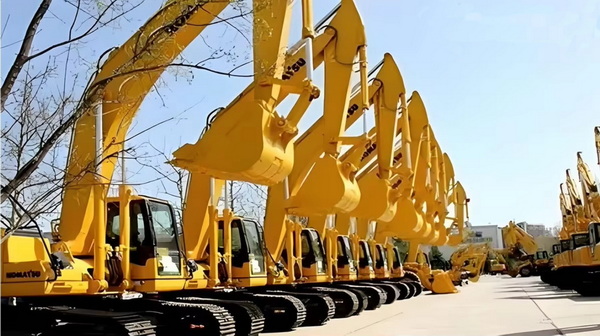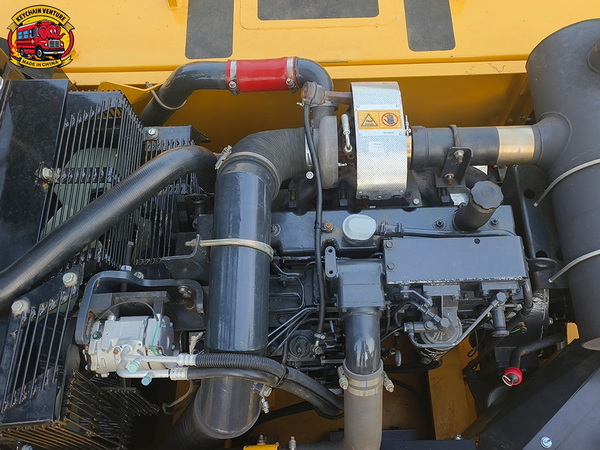Views: 222 Author: Amanda Publish Time: 2025-10-26 Origin: Site








Content Menu
● Understanding Hydraulic Systems in Excavators
● Key Hydraulic Oil Features and Standards
>> Additives
>> Manufacturer and Industry Standards
● Hydraulic Oil Types for Excavators
>> Biodegradable Hydraulic Oil
● Choosing Oil for Used Excavators
● Steps for Hydraulic Oil Change in Excavators
● Common Problems with Hydraulic Oil in Used Excavators
● Maximizing Hydraulic Oil Life
● Environmental and Cost Implications
● Best Practices for Operators and Fleet Managers
>> 1. What is the best hydraulic oil for a used excavator?
>> 2. How often should hydraulic oil be changed in a used excavator?
>> 3. Can I mix hydraulic oils of different brands or types?
>> 4. What are warning signs of hydraulic oil problems in used excavators?
>> 5. Can biodegradable hydraulic oil be used in all types of used excavators?
Selecting the appropriate hydraulic oil for excavators is a critical decision that impacts machine reliability, efficiency, and lifespan—especially when it comes to "Used Excavator" equipment popular with value-driven buyers and international fleets. Hydraulic oil not only transfers power through the system but also ensures lubrication, cooling, cleanliness, and corrosion prevention within the heart of your machinery. This guide dives deep into key considerations for hydraulic oil selection, with a focus on best practices suitable for both new and used excavators, especially in the context of KeyChain Venture Co., Ltd.'s high-performance heavy vehicle solutions.

Excavators rely on a sophisticated hydraulic system—a network of hoses, valves, cylinders, and pumps—that convert hydraulic oil movement into immense mechanical force. For a "Used Excavator," these systems can be more susceptible to wear, leaks, and performance drops if the oil doesn't meet optimal standards. The hydraulic oil functions as the backbone of the machine, driving all motion, enabling precise digging, swinging, and lifting required for construction and mining applications.
Proper hydraulic oil provides several benefits:
- Reduces friction and wear on internal components.
- Enhances power transfer efficiency.
- Dissipates heat and reduces operating temperature spikes.
- Cleans and suspends contaminants, keeping systems free from deposits.
- Protects against internal and external corrosion.
Viscosity, the oil's resistance to flow, is one of the most vital factors. Most excavators require ISO VG 32, 46, or 68 hydraulic oils—each suited to different climate and workload conditions. For "Used Excavator" units, selecting the right viscosity grade helps compensate for potential internal wear and keeps systems working smoothly even under tough conditions.
Modern hydraulic oils come fortified with chemical additives that go beyond basic lubrication:
- Anti-wear agents to shield pumps and valves from friction damage.
- Detergents to keep dirt and metal shavings suspended until the next oil change.
- Oxidation inhibitors for longer oil life, especially in machines that work in high-heat or long-running cycles.
- Rust and corrosion inhibitors to prevent moisture-induced damage.
"Used Excavator" fleets benefit from oils with enhanced additive packages, as their internal tolerances might be looser compared to brand new machines.
Always consider OEM recommendations on hydraulic oil specifications. Industry certifications such as DIN 51524 Part 2 (HLP) and ISO 11158 classify oils by performance and additive package—crucial for used equipment from various global markets.
The most common and cost-effective choice, mineral oil is derived from refined crude oil. It provides suitable baseline protection and performance for many working conditions, particularly in standard-use "Used Excavator" applications. However, mineral oils may degrade faster under extreme temperatures or pressure cycles.
Engineered for exceptional heat, load, and oxidation resistance, synthetic oils excel in challenging environments—making them a worthwhile investment for high-value used equipment. Synthetics extend intervals between oil changes, reduce sludge formation, and provide reliable protection even as excavators accumulate operational hours.
Eco-conscious operators are increasingly adopting biodegradable options, especially when working in environmentally sensitive regions. These oils protect machinery and the planet but should be vetted for compatibility with your excavator's seals, hoses, and elastomers.

"Used Excavator" models may have gone through several maintenance cycles—sometimes with non-standard replacement parts. Hydraulic oils with robust anti-wear and cleaning agents can help extend the useful life of these machines by mitigating the impact of microscopic wear and internal sediment.
Older hydraulic systems are more prone to contamination from internal residue or degraded components. When replacing hydraulic oil in a used unit, consider using a flushing oil to remove accumulated particles before adding fresh oil.
For operators in regions with fluctuating temperatures or heavy dust, selecting oil with superior stability and cleanliness characteristics is key. Used equipment often sees service in diverse climates, so choosing oil matched to both the weather and the work intensity ensures better results.
Documentation is paramount in the upkeep of any used machinery. Keep careful oil change records and conduct regular fluid analysis to detect issues early. For the best long-term results, always replace oil filters with every oil change to prevent old contaminants from entering the new oil.
1. Warm Up the Machine: Operate the excavator to heat and circulate existing oil, ensuring contaminants remain suspended for drainage.
2. Drain and Dispose: Remove old oil from the reservoir and hydraulic lines, properly disposing of waste in accordance with local regulations.
3. Replace Filters: Install new OEM-quality filters for optimal contaminant removal.
4. Clean Contact Surfaces: Wipe fill points and reservoir access seals meticulously.
5. Add New Hydraulic Oil: Pour in the selected oil to specified fill marks. Reference manufacturer guidelines for correct viscosity grade and quantity.
6. Prime the System: Start the engine and run all hydraulic functions to purge air, allowing oil to reach every component.
7. Inspect and Top Up: Recheck fluid levels, inspect for leaks, and top up as needed.
- Sluggish motion or delayed response: Usually due to oil with incorrect viscosity, or old oil thickened by oxidation.
- Premature wear and tear: Low-quality or contaminated oil accelerates wear on pumps and actuators.
- Seal Leakage: Oils incompatible with older seals cause shrinkage or swelling, increased leaks, and pressure loss.
- Overheating: Inadequate lubrication can lead to excessive friction and overheating, risking system failure.
Properly managing hydraulic oil in a "Used Excavator" involves:
- Regularly scheduled laboratory testing to monitor contamination, oxidation, and additive depletion.
- Storing oil in clean, sealed containers to prevent environmental contamination before use.
- Avoiding the mixing of oil brands or types—even small chemical incompatibilities can destabilize the additive package and reduce oil performance.
The choice of hydraulic oil affects both operational costs and corporate sustainability. While premium synthetic and biodegradable oils have higher upfront costs, they extend service intervals and minimize risk to surrounding environments—a benefit for companies managing large fleets of used equipment.
"Used Excavator" owners should:
- Invest in periodic oil analysis for early detection of wear or contamination.
- Document every oil and filter change performed.
- Train staff to recognize the early signs of hydraulic system distress, such as odd sounds, sluggishness, or visible leaks.
- Always consult with both vehicle manufacturers and reputable oil suppliers to match oil selection with the equipment's unique service history and the demands of upcoming projects.
Selecting the correct hydraulic oil for excavators—especially for "Used Excavator" equipment—will safeguard long-term productivity, minimize repair costs, and ensure peak machine availability in challenging work environments. Whether opting for proven mineral oils, advanced synthetics, or environmentally friendly bio-oils, following best practices in oil selection, maintenance, and operator training unlocks your excavator's full potential and promises maximum return on investment for your fleet.

High-quality mineral or synthetic oils with robust additive packages, chosen according to the original equipment manufacturer's specifications, offer the best protection and performance for used units.
A general guideline is every 2,000 operating hours. However, harsh conditions or frequent project changes may call for more frequent changes—use oil analysis to determine the optimal schedule.
Mixing is not recommended. It may cause chemical incompatibility, loss of additive function, and increased risk of leaks in older seals and hoses.
Look out for loss of hydraulic power, increased noise, abnormal heat, seal leaks, and signs of oil contamination or discoloration.
Many modern biodegradable oils are fully compatible with elastomers and seals in both new and old machines, but always verify with your supplier and review manufacturer recommendations before switching.